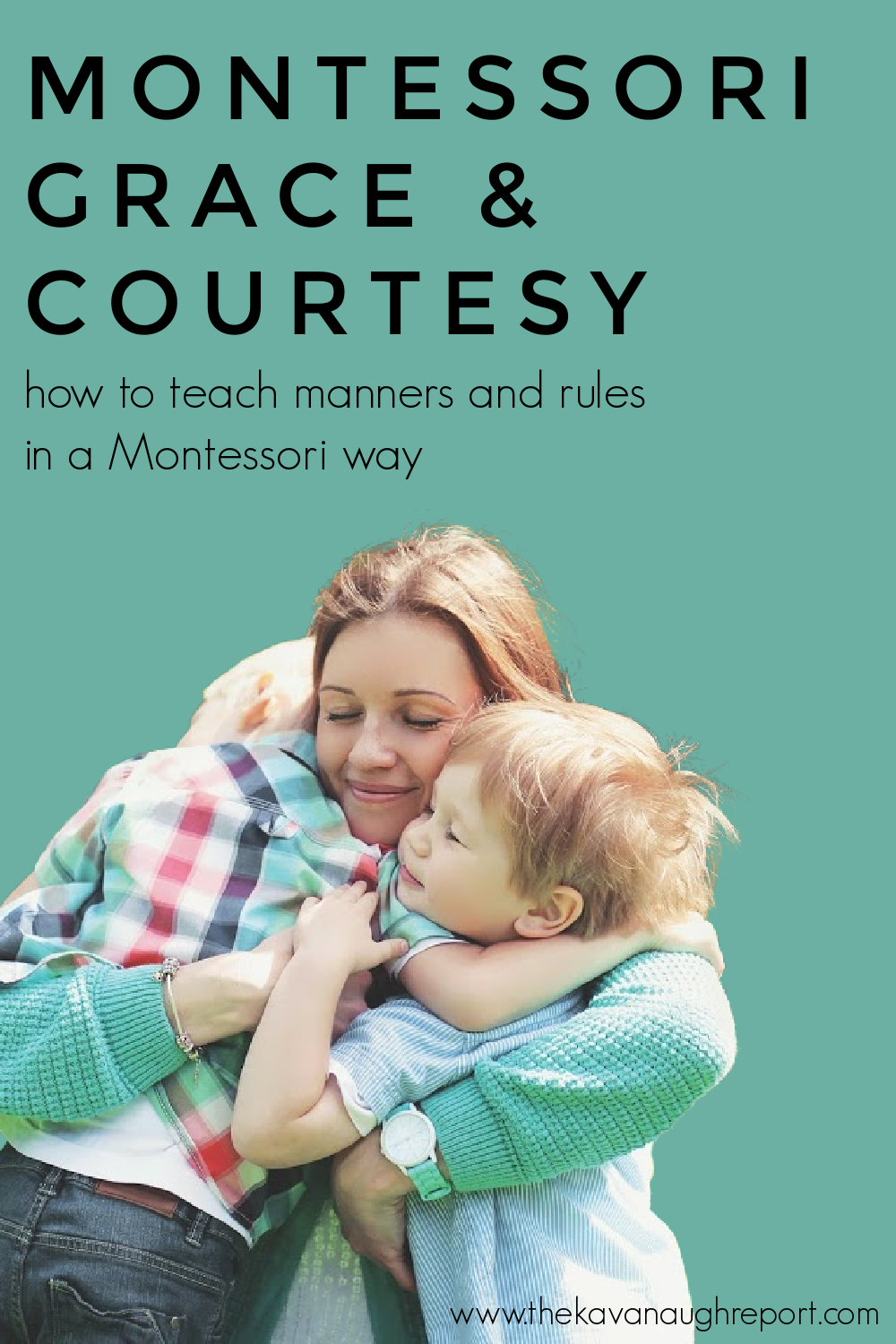As humans we have a huge list of social "rules" that we follow everyday when interacting with our families and other people. These are expectations for behavior that have become (for better or worse) social expectations. We say "hello" when greeting someone. We say "excuse me" to get past something. The exact examples will vary based on your personal comfort levels, cultural background, religious beliefs, and customs. But, no matter who you are or where you live, your family will follow a set of unsaid social rules.
When a baby is born into those rules, they have to learn them. In a traditional, non-Montessori home this might be done through discipline, correction, and punishment over time. A small child is running in house, for example. The parent might stop the child and correct, "Stop running! You're going to hurt someone!" or it could go further, "I've told you to stop running a hundred times, next time, you're going to sit in time-out."
In a Montessori environment, we do something a little differently - grace and courtesy lessons! Instead of correction, or assuming our children should understand these unsaid rules, we make them really explicit through small lessons. These are little opportunities to role play through the scenario so that a child can learn the rule and the expected behavior.
An Example
So the running example might go something like this.
"Our bodies are really amazing! We can move like this (move silly) or like this (move fast) or even like this (move really really slowly)! Woah! Our bodies are so cool! I want to show you how we need to move in the house. Watch! (Walk normally) This helps to keep everyone safe. Will you try with me? Great! (walk together) Can you show me how we can move to keep everyone safe? (child shows) You know just how to walk inside!"
Then, I would end there. Simple. Now the child not only knows the rule but the expected behavior. It's a simple step that makes such a huge difference. This can be done for so many different social rules and expectations including how to:
- listen during a story
- turn the pages of a book
- properly blow their nose
- cover a cough
- open or close a door
- walk inside
- greet a friend or visitor (or for older child, answer the phone)
- say goodbye
- wait for something
- observe someone's work
- pull out a chair
- carry around furniture
- walk with glass
- handle sibling conflict
- apologize
- use basic manners "please," "thank you," "excuse me"
- acknowledging something that has been said to them
- return something to it's proper place
- touch a baby
- ask someone to play with them
- decline an invitation to play
- ask to play with someone else
This list could almost be endless!
Tips to Make it Happen
It can take some time to get used to parenting this way and using grace and courtesy lessons to make everyone understand the rules and expectations of your home. Here are some tips to keep in mind:
- These don't happen in the moment. Choose a neutral time (not a time when your child is exhibiting the undesired behavior) when everyone is calm. If you see a something that needs to change, use that time to observe and make a mental note to do a grace and courtesy lesson.
- Keep your own expectations in check. Kids may need more than one lesson on the same topic before they understand it. Avoid the temptation to just think your kids' aren't listening or are being naughty if they don't follow or understand these unsaid social expectations or rules.
- Make it simple. The younger the child, the more simple the lesson should be. There's no one specific script you need to follow, just adapt to your child's level.
- Keep it fun and positive. Make a lesson about connection not correction. Avoid judgment, don't bring up past behavior. Use humor, silliness and love to make your point.
- Practice, practice, practice. These lessons will take time and patience. Maybe you give the lesson a couple times. Maybe you practice a new skill together outside of the lesson for awhile. Maybe you're playing with dolls and they practice the skill! Just remember this isn't a one-and-done thing.
- Model. Practice what you preach! If you're asking your kids to hold a plate with two hands and walk slowly to the table - do it yourself. If you're asking your kids to talk in the house - then avoid yelling. They are absorbing your everyday behavior as much as anything else.
I hope this is helpful! Grace and courtesy lessons really are the key to addressing so many different scenarios and situations in a Montessori environment!
Do you give these kinds of lessons to your child?






